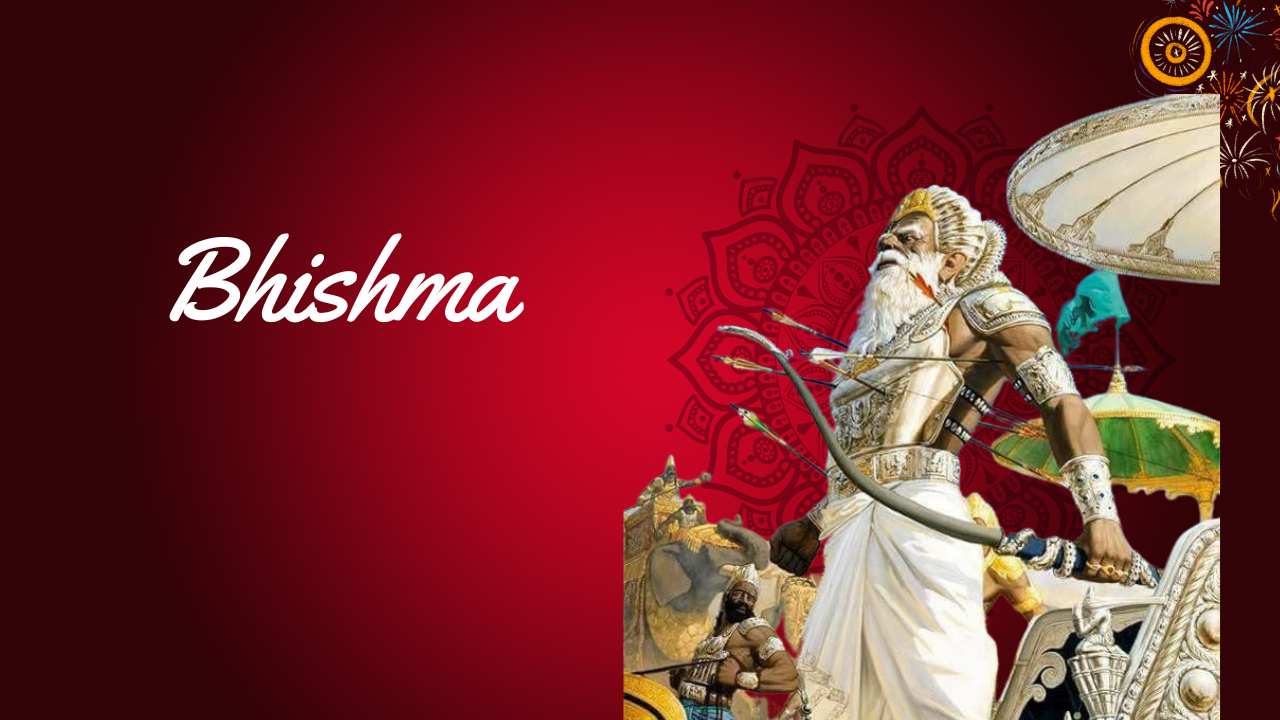He had the ability to choose when he dies, and considered by many as the greatest warrior of Mahabharata, he was none other than Bhishma Pitamah.
Respected and loved by all he was able to defeat even the great Parsuram. A whole life full of sacrifice and he lived to see his kingdom safe and prosper.
He is also one of the most prominent and revered figures in Hindu mythology, best known for his unwavering loyalty and devotion to his family and kingdom. Here are a few lesser-known facts about Bhishma Pitamah that you may find interesting:
1. Bhishma Pitamah was born from a divine curse
According to Hindu mythology, Bhishma Pitamah was born as the son of King Shantanu and Ganga, the goddess of the Ganges. However, Ganga had been cursed by a sage to be born as a mortal woman, and she agreed to marry Shantanu on the condition that their children would be taken away by her as soon as they were born.
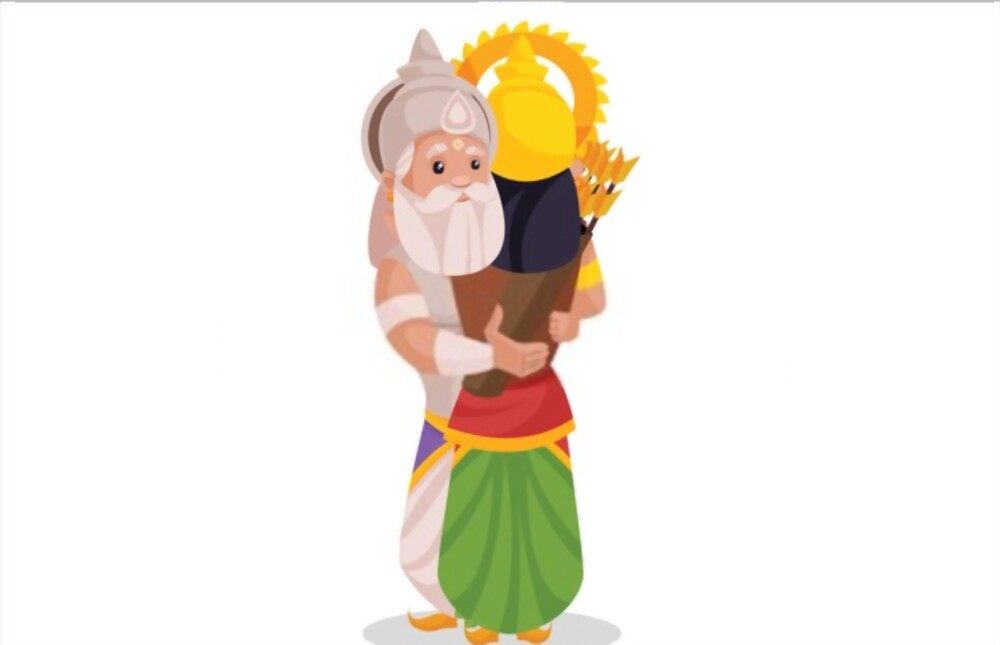
Bhishma was born Devavrata, the 8th son of King Shantanu and Ganga, from a divine curse. According to the legend, Ganga was cursed to be born as a mortal woman and was married to Shantanu on the condition that she would take away their children as soon as they were born.
Ganga drowned seven of her sons, and when she was about to drown Bhishma Pitamah, Shantanu stopped her and confronted her about her actions, breaking the condition of their marriage.
Ganga revealed herself to be a goddess and stated that she drowned their sons as part of a curse that had been put upon them by the sage Vashishtha, who had cursed the celestial Vasus to be born as mortals and suffer a miserable life on earth. Ganga promised Shantanu that Bhishma Pitamah would be his heir and left,
You May Also Like: The Untold Story Of Yuyutsu, The Only Kaurava From Mahabharata Who Fought FOR The Pandavas
2. His oath of celibacy and power of control over death
Devavrata, who was later known as Bhishma Pitamah, was already made the heir-apparent of the Kuru Kingdom and was loved by the citizens due to his divine background.
His father, King Shantanu, fell in love with a fisherwoman named Satyavati, but her father insisted that the son born to her would become the heir to the throne.
Shantanu rejected the offer as he had already promised the throne to Devavrata. Upon noticing his father’s sorrow, Devavrata went to the fisherman’s cottage and begged for Satyavati’s hand in marriage, promising to put their son on the throne instead of his own children.
To satisfy the fisherman’s concerns, Devavrata took a vow of lifelong celibacy, renouncing the pleasures of marital life and giving up his rights to the throne. He was praised by the celestials, and this is how he came to be known as “Bhishma” and also granted the power of “Iccha Mrityu”, the control over the time of his death.
With the fisherman’s consent, Bhishma took Satyavati to his father and informed him of his vows. King Shantanu, being a loving father, accepted his decision and blessed the union of Shantanu and Satyavati who later gave birth to two children, Chitrangada and Vichitravirya.
3. The story of Amaba and her revenge
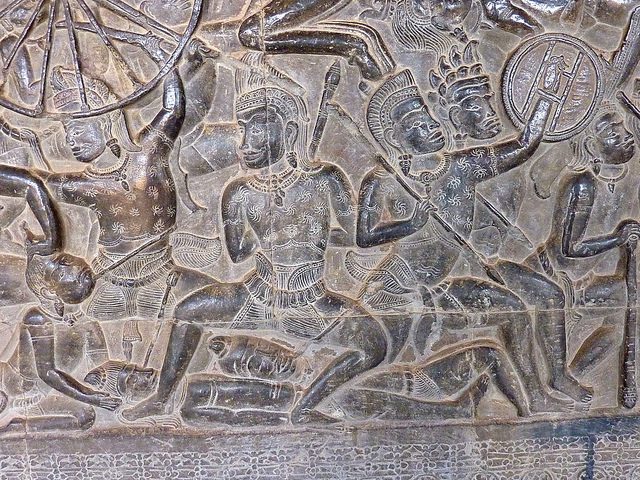
Amba, the princess of Kashi, along with her sisters Ambika and Ambalika, were abducted by Bhishma Pitamah during their Swayamvara ceremony as brides to marry King Vichitravirya of Hastinapura.
As Vichitravirya grew up, his mother Satyavati wanted to get him married. Bhishma Pitamah, his half-brother, took the responsibility of getting Vichitravirya married.
He came to know about a Swayamvara for the King of Kashi’s daughters and felt it was an insult to the Kuru dynasty as the Kurus were not invited.
Bhishma Pitamah decided to take matters into his own hands and abducted the princesses, Amba, Ambika, and Ambalika by force, and defeated their father and a brave prince named Salva.
Amba later revealed her love for Salva and Bhishma Pitamah felt ashamed and made arrangements for her to return to Salva. However, Salva could not accept her because she was considered Bhishma’s bride.
Her father also refused to accept her back. Enraged, Amba returned to Hastinapur and demanded that Bhishma Pitamah marry her. Bhishma Pitamah refused since he had taken a vow of celibacy.
Vichitravirya also refused to marry her as she had already accepted another man as her husband. Disappointed and filled with rage, Amba decided to take revenge on Bhishma Pitamah and as part of her plan, she was later reborn as Shikhandi. Vichitravirya is later married to Ambika and Ambalika.
Amba holds Bhishma responsible for her plight and takes a vow to take revenge. She undergoes penance and is granted a boon by Lord Shiva to be reborn as Shikhandi.
Shikhandi is the child of King Drupada and the sibling of the epic’s female protagonist, Draupadi. In Mahabharata, Shikhandi is used as the tool for Amba’s revenge against Bhishma in the battle of Kurukshetra.
4. The stalemate in a battle between Bhishma and Parshurama – teacher and disciple
As per the epic, Amba earlier reached Parshurama and requested him to teach Bhishma a lesson. Parshurama, who also was the teacher of Bhishma, decided to fight him in order to have justice for Amba. The fight ensued for a long time and nobody could be beaten.
The reason, Parshurama was Akhand Chiranjeevi, which means one who could not die and Bhishma had a boon from his father, Shantanu, that he would be able to choose the time of his death.
You may also like: Draupadi – 11 Amazing Facts About Heroic Princess of Mahabharata
5. Even Lord Krishna was forced to threaten the use of weapons against Bhishma, the great warrior
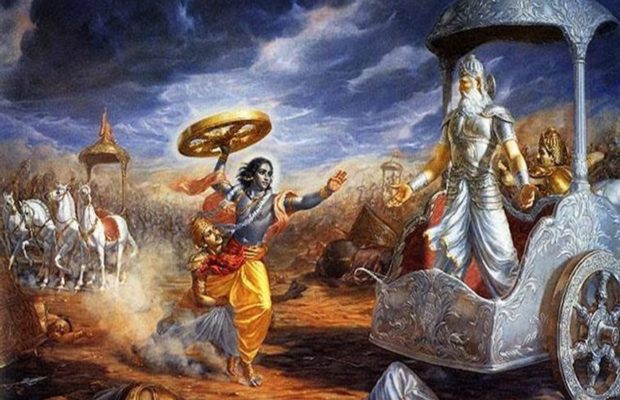
Lord Krishna hoped to kill Bhishma because Bhishma was fighting gallantly and was inflicting serious losses on the Pandava side. And despite lord Krishna’s urging, Arjun was not fighting with his full strength when faced with Bhishma due to his respect for him.
To make Arjuna aware and commit him to the cause of war Lord Krishna pretends to be angry and himself ran to kill Bhishma Pitamah with his Sudarshan Chakra (mighty disc). But as soon as Arjuna saw him running towards Bhishma Pitamah he became afraid that by this act, his vow of Krishna would be shattered and he ran to stop him.
He later promised Lord Krishna that from now onwards he will show his full might against Bhishma and will inflict heavy losses on his side. When Krishna became convinced, he came back and resumed his role as Arjuna’s charioteer.
While some say he acted to motivate Arjuna some sources state that Krishna was forced to fight by the astounding bravery and sheer brilliance of Bhishma on the battlefield. Bhishma had vowed a day before that he will fight so bravely, that lord Krishna will have to break his vow of not ever using weapons in the Kurukshetra war.
6. Bhishma Pitamah was a master of all weapons

He was a skilled warrior and an expert in the use of all weapons, including the bow, the sword, and the mace. H
e was also trained in the use of divine weapons, such as the Brahmastra, which is considered the most powerful weapon in Hindu mythology.
7. He was respected by both sides, Kauravas, and Pandavas
Bhishma Pitamah’s staunch loyalty and devotion to his family and kingdom were respected by both sides in the Kurukshetra War.
He was respected even by Lord Krishna himself.
8. Bhishma’s defeat in battle was due to deceit
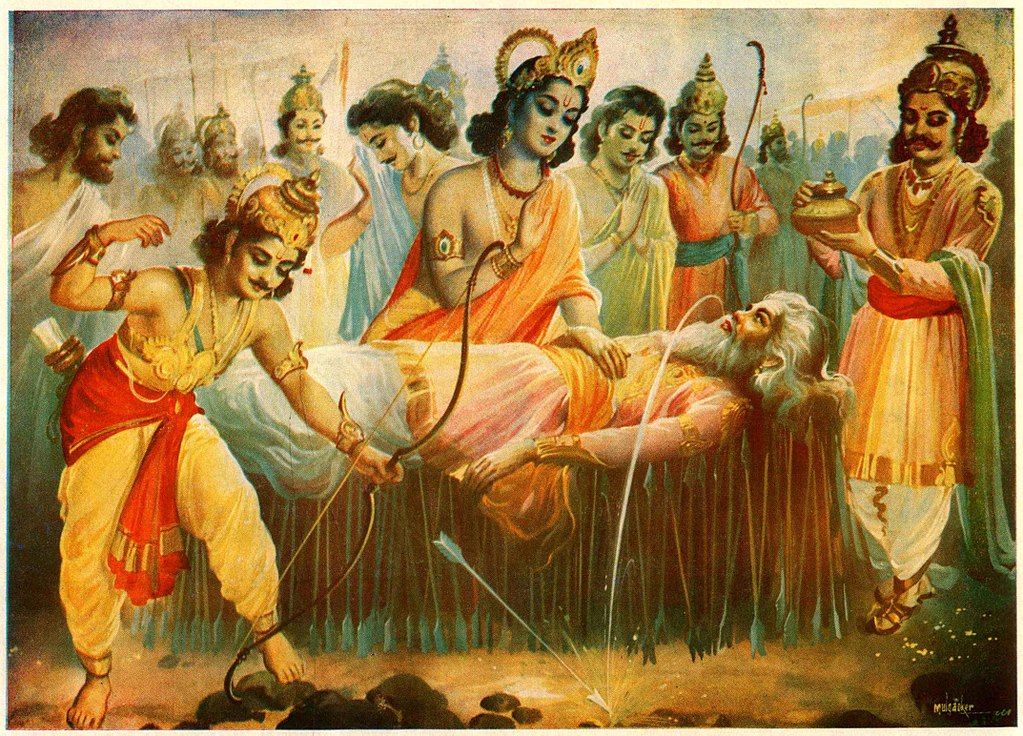
During the Kurukshetra war, Lord Krishna suggested a clever way to defeat Bhishma Pitamah to Arjuna, through the help of Shikhandi, who was the reincarnation of Amba.
However, the Pandavas were not willing to use such tactics as they went against the path of Dharma. Krishna suggested a clever alternative that Arjuna and Shikhandi used on the tenth day of battle.
Shikhandi was accompanied by Arjuna as Arjuna was his chariot protector and they faced Bhishma in battle while Arjuna stood behind and pierced Bhishma with many arrows.
As Bhishma fell, his whole body was held above the ground by the shafts of Arjuna’s arrows and his head was unsupported.
Many princes, both Kauravas, and Pandavas, brought pillows of silk and velvet, but Bhishma refused them and asked Arjuna to give him a pillow fit for a warrior. Arjuna placed three arrows underneath Bhishma’s head, with the pointed arrow tips facing upwards.
To quench his thirst, Arjuna shot an arrow into the earth, and a jet stream of water rose and entered Bhishma’s mouth. It’s believed that Ganga, Bhishma’s mother, came to quench her son’s thirst.
9. Bhishma’s death was his own choosing
Bhishma Pitamah chose to wait until the winter solstice or the first day of Uttarayana to give up his body on the bed of arrows, waiting for 58 days.
According to Mahabharata, he attained salvation after his death and was granted the Maatru Lok, which is considered even above heaven. The death anniversary of Bhishma Pitamah is marked by Magha Shukla Ashtami, known as Bhishma Ashtami.
10. Bhishma Ashtami is still celebrated
On Bhishma Ashtami, many Hindus observe Ekodishta Śrāddha, a ritual performed for deceased fathers. The ritual can only be performed by those whose fathers are not alive. Additionally, the Bhishma Panchaka Vrata is observed in all Vishnu temples, lasting for five days until Bhishma Dwadasi.
It is believed that those who observe this fast will be blessed with a son who possesses the steadfast qualities of Bhishma Pitamah if they perform these rituals on the river banks.
It is also believed that those who observe this fast will live a happy life and attain salvation after death.
Bhishma remains one of the most legendary warriors in the great epic of Mahabharata. His sacrifice and devotion are still celebrated today and his story is an enduring part of Hindu mythology, providing valuable lessons on duty, morality, and the nature of sacrifice.
